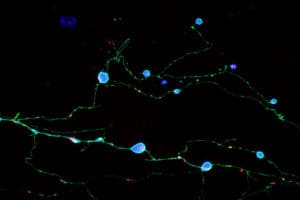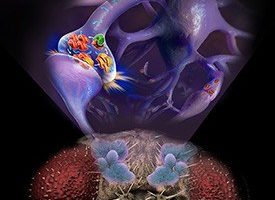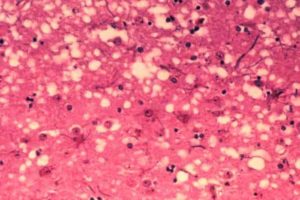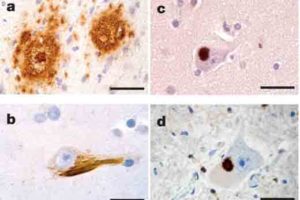prion
Needle-in-a-haystack search identifies potential brain disease drug
Scientists who examined more than 10,000 chemical compounds during the last year in search of potential new drugs for a group of untreatable brain diseases, are reporting that one substance shows unusual promise. The early positive signs for so-call…
Research identifies drug target for prion diseases, ‘mad cow’
LEXINGTON, Ky. (Jan. 4, 2011) − Scientists at the University of Kentucky have discovered that plasminogen, a protein used by the body to break up blood clots, speeds up the progress of prion diseases such as mad cow disease.
This finding m…
NIH study suggests that early detection is possible for prion diseases
A fast test to diagnose fatal brain conditions such as mad cow disease in cattle and Creutzfeldt-Jakob disease in humans could be on the horizon, according to a new study from National Institutes of Health scientists. Researchers at NIH’s National I…
Pressure, heat help reduce prion infectivity in processed meats
The combination of high temperature and very high pressure in the preparation of processed meats such as hot dogs and salami may effectively reduce the presence of infective prions while retaining the taste, texture, and look of these meats, according to a study in today?s Proceedings of the National Academy of Sciences (PNAS) Early Edition.
Clue to prion formation found, offers step toward treating puzzling diseases
Prions–their existence is intriguing and their links to disease are unsettling. These unconventional infectious agents are involved in mad cow disease and other fatal brain illnesses in humans and animals, rattling prior assumptions about the spread of infections. Dartmouth Medical School biochemists studying the mysteries of these prion particles have discovered a novel step in their formation. Their results, reported in a recent issue of Biochemistry could help provide a new approach for therapy against prion diseases. The team, headed by Dr. Surachai Supattapone, assistant professor of biochemistry and of medicine, includes Ralf Lucassen and Koren Nishina.
Immunization may prove therapeutic for prion diseases
Researchers at NYU School of Medicine have found that immunization prolongs the incubation period for prion diseases such as Creutzfeldt-Jakob disease and may have therapeutic value for other neurodegenerative illness such as Alzheimer’s disease. Prion disease is a fatal brain disease manifested through failure of muscle control and dementia. Forms of this disease have been discovered in deer and elk (chronic wasting disease), in cows (bovine spongiform encephalopathy ? BSE ? or “mad cow disease”) and in sheep (scrapie strain).




